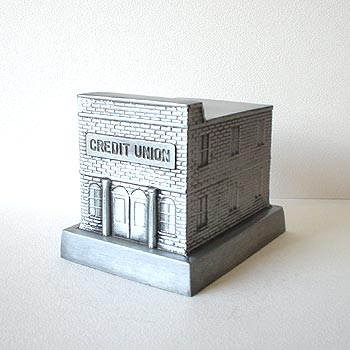
Blogtrepreneur: Today I’d like to talk to you about a technique for generating more search engine traffic. This is something I stumbled on in my own blogging and I am shocked at how well it works. Obviously it isn’t fool-proof, but if it is done right, you will see a huge amount of supplemental traffic coming to your blog. For lack of a better term, I’m going to call it “blogging with micro niches.”
Most bloggers have identified at least one niche in their industry and have based their blog on it. For example, simply blogging about “Business” would be difficult to develop and focus in-depth content unless you further defined it as “Online Business” or “Home Based Business” or “Women Owned Business.” Each of these niches provides you with a substantial enough subject that you can write every day—yet it limits your topics and gives your blog clarity. Blog readers are often drawn to niche blogs that speak to them personally, and are more likely to subscribe to these blogs as well as recommend them to other people.
Bringing in Blog Traffic With Micro Niches [Blogtrepreneur]
Month: March 2009

Article Contributed by By Paul Hazen
In Raleigh, North Carolina, new homeowners John and Jennifer Hall made a smart decision: instead of choosing a risky mortgage scheme from a bank — a decision that has been catastrophic for so many of their contemporaries, the couple applied for a loan through the North Carolina State Employees’ Credit Union (NCSECU).
The couple did their homework, and concluded that it made better sense to work with a non-profit financial cooperative to purchase their first home. Aside from lower fees and closing costs, NCSECU did something the others didn’t: a credit-union employee sat down with the couple to explain the pros and cons of the various mortgage options. Because credit union employees are non-commissioned, there was no pressure, enabling the couple to see the credit union as a trusted advisor.
“There are so many young folks who don’t realize the advantage of going with a co-op,” says John, who believes that all North Carolinians benefit from non-profit financial cooperatives that help to keep other financial institutions in check by ensuring citizens remain eligible for competitive rates and fees. “Being a member can make a tremendous difference in your financial life!”
You Belong
Are you frustrated with your bank? You may be tired of paying endless fees, high interest rates and receiving poor customer service. And in light of the current financial crisis, you may find yourself among those with good credit experiencing trouble getting a car or home loan, which is the result of tightened lending standards due to the banking industry’s own.
Fortunately, you have options.
Credit unions offer a fresh alternative to investor-owned banks while providing the same kinds of services. As a credit union member, you can open a checking or savings account, buy a certificate of deposit and get a loan. Some credit unions can even help invest for your retirement or offer financial planning courses before you buy your first home.
Credit unions are cooperative businesses, owned by members (depositors) who share something in common, such as where they work, live or worship. Because credit unions tend to be smaller and cater to a select group of people, you can expect a more personal relationship between the staff and the members.
Unlike commercial banks that generate profits for owners and outside shareholders, credit unions channel profits back to members in the form of lower fees, better interest rates and higher dividends. According to the American Banker/Gallup poll, credit unions consistently rank high among consumers for service and customer satisfaction every year since 1983.
Keep Your Money Safe
Credit unions have emerged as a safe haven for consumers. Because credit unions avoided the risky loans and exotic investments that brought down so many banks, they remain relatively untouched by the recent financial crisis, credit union members have peace of mind knowing their money is safe.
Credit unions are financially solid because they stick to conservative banking practices, such as requiring down payments and income verification on mortgage loans. While many banks were chasing ever more exotic ways to make money, credit unions stuck to the basics.
Some people are leery of putting their funds in the hands of a credit union because they believe the credit union isn’t FDIC insured. Nothing could be further from the truth. Like banks and savings institutions, credit unions deposits are insured up to $250,000 by the federal government, providing the same level of protection for investor assets as any federally insured banking institution.
Credit Unions Still Lending
Commercial banks have recently curtailed lending, even to people with good credit. The result is that many consumers are having trouble getting home and car loans due to tightened lending standards.
This is not the case with credit unions, which continue making loans available to people with good credit histories. In fact, credit unions are now experiencing higher loan volumes as consumers turn to them in greater numbers since the recent banking sector meltdown.
According to the Credit Union National Association (CUNA), credit unions made 36 percent more small business loans in the first half of 2008 than the same period in 2007, a reflection in part of the ability of credit unions to lend while banks horde cash.
Now, as conventional banks avoid lending even to credit worthy buyers, credit unions are poised to take a much larger share of the traditional lending business – including homes, cars and small business loans.
Join a Credit Union Today
Though once associated with trade unions, hospitals, universities and other large employee groups, credit unions are increasingly open to the general public within a given community. There are also “select employee groups” that offer credit union members to a network of affiliated businesses.
You’ll find many reasons to join a credit union, including:
• Unlike many commercial banks, credit unions are still lending
• You have access to great products and services.
• Be heard. Your voice counts — your co-op truly cares what you think.
• You’ll be part of a values-based organization that puts people ahead of profit.
• Share in the financial success of the organization.
• Contribute to a thriving local economy.
• Invest in a business that is locally owned and democratically controlled.
• Be part of a strong and proud cooperative tradition.
• Help change the way business is conducted in America and around the world.
There are over 8,100 credit unions in the United States, which means that just about any consumer can find a credit union they are eligible to join, or by visiting www.thebetterchoice.coop.
About the Author
Paul Hazen is CEO of the National Cooperative Business Association (NCBA), the only cross-sector member association representing all cooperatives in the United States. To view a video showing why credit unions are the better choice and to find a credit union, visit http://www.thebetterchoice.coop

Article Contributed by David Gruttadaurio
What would happen if you increased referrals by 20%, 40% or even 100% or more?
What would your business be like?
Could you expand your company?
Could you increase your rates?
Could you retire earlier and perhaps enjoy more of the good life?
Absolutely!
But, most businesses (both online of offline) will never experience any of these benefits of increasing their referrals.
Why Referrals Dry Up After a Month
Most businesses are simply out of sight and out of mind. They allow their customers to forget about them.
I know, it’s so unfair, especially after doing such a great job for them. But it’s a universal truth.
Life today moves at the speed of light. If you don’t consistently work to remain in the awareness path of your clients, you can be certain they will never remember you or your company.
The GOOD NEWS is this problem can be easily fixed by a customer newsletter.
The REALLY GOOD NEWS is that a monthly customer newsletter will also create massive referral action by your clients.
4 Ways to Get More Referrals with Newsletters
1. Educate clients and prospects. Most people who engage in newsletter marketing make the mistake of trying to pitch on every page. That’s fastest way to get your newsletter in the trash can. If you want more referrals, build a trusting relationship by offering real content with high informational value.
2. Write newsletters that get passed around. Boring content doesn’t get read, much less passed on to anyone. That means your content must be interesting and engaging… that means it shouldn’t be all about you. You may love your business, but don’t expect your customers to feel the same way. Your newsletter should include articles that inspire, inform and are fun to read. This is the ONLY WAY your newsletters will get passed around bringing you more referrals.
3. Get your newsletter out to as many as possible. If you follow my newsletter marketing system, people will read your newsletters as a publication. They will not see it as a marketing piece even though it really is. This makes a quality newsletter a great way to tell your story in all kinds of situations. So, hand out copies at sales calls, trade shows and seminars. Drop them off at realtors and doctors offices. Put them in envelopes when you pay bills. And make sure people can download a copy on your website, after they give you their contact information.
4. Thank referrers in your newsletters. A standard feature in every newsletter should be a thank you to the clients that have referred you to others. Realizing how important referrals are to your business will motivate other customers to refer you too.
The Bottom Line
You will not get referrals if you do not manage your existing customers properly.
Your existing customers are your best sales people. They already know the quality of your products and services. They will continue to call you and REFER you if they are reminded to do so. A monthly client newsletter provides this friendly reminder in an interesting and non-intrusive way.
Follow this advice and you’ll be light years ahead of the competition and enjoy a constant stream of referrals.
About the Author
David Gruttadaurio was tired of wasting money on marketing that didn’t work. So he searched for a marketing tool that would give him more clients for his cleaning business until he found newsletter marketing! Through print newsletters he was able to get more referrals and triple his sales. Now, discover how he got and retained more clients with his FREE “Profit Exploding Newsletter Secrets Report” at http://www.NewslettersMadeForYou.com